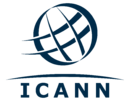Main Page: Difference between revisions
No edit summary |
Weekly Article - RrSG |
||
| Line 21: | Line 21: | ||
<br /><div style="color: #FFF; background-color: #0d8323; padding: 5px 10px; border: 1px solid #466f81;"><big>Article of the Week</big></div><div style="padding: 10px;"> | <br /><div style="color: #FFF; background-color: #0d8323; padding: 5px 10px; border: 1px solid #466f81;"><big>Article of the Week</big></div><div style="padding: 10px;"> | ||
<big><b>[[ | <big><b>[[Registrar Stakeholder Group]]</b></big> | ||
<br /> | <br /> | ||
The [[Registrar Stakeholder Group]] (RrSG), is an [[ICANN]] [[Stakeholder Groups|Stakeholder Group]] representing ICANN-accredited [[registrar]]s. It was first recognized by the [[ICANN Board]] on 27 May 1999. The RrSG participates in ICANN's policy-making process and also works as one of the most efficient bodies in raising the voice of the registrars within the ICANN community. The RrSG is a part of the [[Contracted Parties House]] under the [[Generic Names Supporting Organization]] (GNSO), the main policymaking body for ICANN. There are three representatives that are elected to the GNSO Council from the RrSG, where they represent the views of the other members of the RrSG and vote on policy matters. | |||
<strong>([[RrSG|Read the full article...]])</strong> | |||
<strong>([[ | <div style="float:right;"><small><strong>Related: [[Registrar]] - [[Contracted Parties House]] - [[SO]]</strong></small></div><div style="clear: left;"></div></div> | ||
<div style="float:right;"><small><strong>Related: [[ | |||
<br /><div style="color: #FFF; background-color: #466f81; padding: 5px 10px; border: 1px solid #0d8323;"><big>Latest Feature</big></div><div style="padding: 10px;"> | <br /><div style="color: #FFF; background-color: #466f81; padding: 5px 10px; border: 1px solid #0d8323;"><big>Latest Feature</big></div><div style="padding: 10px;"> | ||
Revision as of 18:09, 10 March 2014
ICANNWiki Info Sheet
Many thanks to our sponsors for all of their continued support!
Registrar Stakeholder Group
The Registrar Stakeholder Group (RrSG), is an ICANN Stakeholder Group representing ICANN-accredited registrars. It was first recognized by the ICANN Board on 27 May 1999. The RrSG participates in ICANN's policy-making process and also works as one of the most efficient bodies in raising the voice of the registrars within the ICANN community. The RrSG is a part of the Contracted Parties House under the Generic Names Supporting Organization (GNSO), the main policymaking body for ICANN. There are three representatives that are elected to the GNSO Council from the RrSG, where they represent the views of the other members of the RrSG and vote on policy matters.
(Read the full article...)
Name Collision
A Name Collision describes the circumstance in which a term attempting to reach a private Domain Name results in resolving to a public Domain Name unintentionally. Private domain names are used in Intranets and in many corporations and organizations throughout the world. A domain name on a private network that matches a name in the public Internet can create security risks, confusion, and systems failure. Although the Name Collision issue is not new, a renewed interest in the issue came about in 2013 as ICANN's New gTLD Program was preparing to delegate hundreds of new domain names to the Root Zone. The topic was debated fiercely within the ICANN community when a report by Interisle Consulting was prepared for and released by ICANN.
(Read the full article...)
- gTLD Auctions
- Closed gTLDs
- Sort All TLDs by Priority
- 了解ICANN 和 新gTLDs计划
(Chinese micro-site)








